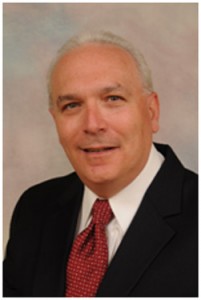I am surethat somereaders will identify with your situation and question. My assumption is that you enjoyed the day-to-day business of research administration, helping faculty, and solving transactional problems in pre-award or post-award administration. Now you arefindingless time to do the work in which you excel, and that you are comfortable doing. Perhaps you are mourning a loss of role as you are coming to terms with the new responsibilities you have accepted. Perhaps the sense of mastery that you experienced in your past role has not happened sufficiently yet in this new leadership role for you to overcome the loss of what you knew well and what you did previously. (I will bet that you still have ways of enjoying some of what you liked in your previous roleif you can becreative about it and see yourself as a mentor and guide for others.)
I do not know how long you have been in your new role: one month? two years? longer, shorter? The length of time will have an impact on how you may be feeling, and if you arestill in your first 90 days or so, then some might suggest that you give the new role more time. In my experience coaching new leaders, this advice is not very useful. The reason? It takes more than time to become accustomed to something new (e.g. new job, new city, new family member, etc.) It takes an intentional attitude of patience with oneself and others, and a willingness to be vulnerable by asking questions and learning about your new role. It takes curiosity. To some, this sounds frightening…others say, bring it on! It takes openness and a willingness to learn from others and experience some of the discomfort that comes from making mistakes, but seeing mistakesas opportunities to learn and demonstrate your humanity to others. There is an expression, “Say yes to the mess,” and that is the advice I give you. Enjoy the mucking around that occurs when one takes on a new job. Notice the discomfort that you will experience from time and time and ask yourself where it is coming from and why it occurs. Challenge yourself to be self-aware in leadership.
You say that you don’t like managing people, yet you were promoted to aroleto do exactly that. Someone must havethought otherwise about your leadership potential. Do you? I am wondering if you experienced a set-back of some kind in managing your new team which prompted you to write. Did you try to influence someone and your approach did not work? Did you havea disagreement with ateam member? Did you makea difficult decision that meant saying “no” to someone? Are you finding it challenging to be promoted to leader when you were “one of the team” before and, perhaps, miss some of the informality that your previous role offered? Being the boss is tough, and at times it is lonely. Have you developed a network at your institution and beyond so that you can meet and learn with others who are new to supervision as well as with experienced leaders? Do you have a mentor? What have you learned thus far about your leadership style and how you work with people?
I encourage you to take some notes on how you are feeling emotionally throughout the day, and about the learning that you experience in the new role. You may find this both therapeutic and fun to look back on one day. It willalso help you seethataleadership role,especially thefirst supervisory role, can be difficult. But, the rewards of seeing a team gel, of seeing a team produce outstanding work in a way that advances both the institution, the team, and its members can be one of the most enjoyable professional experiences. Give yourself a chance to experience all of that good stuff. Give yourself permission to learn and e a “beginner” as a supervisor. That is your new work: embrace it.
‘‘It takes an intentional attitude of patience with oneself and others, and a willingness to be vulnerable by asking questions and learning about your new role.”
 Garry Sanders is an executive coach and graduate of Georgetown University’s Certificate Program in Leadership Coaching. Garry is a long-time research administrator and recipient of NCURA’s Distinguished Service Award. He can be reached at gsanders@assistleadership.com and (518) 588-0992.
Garry Sanders is an executive coach and graduate of Georgetown University’s Certificate Program in Leadership Coaching. Garry is a long-time research administrator and recipient of NCURA’s Distinguished Service Award. He can be reached at gsanders@assistleadership.com and (518) 588-0992.

